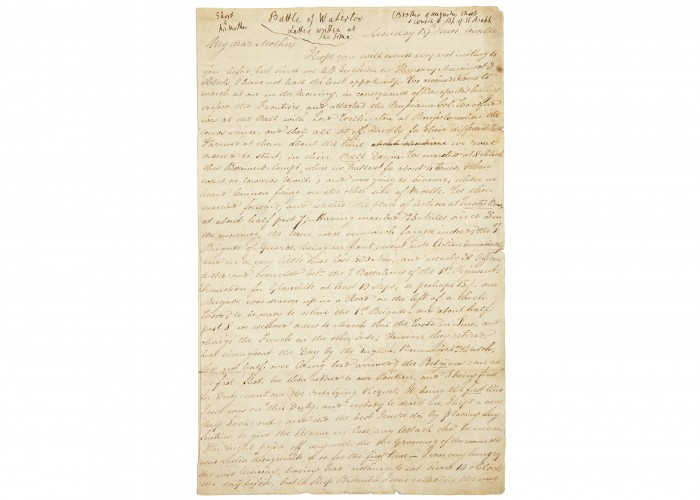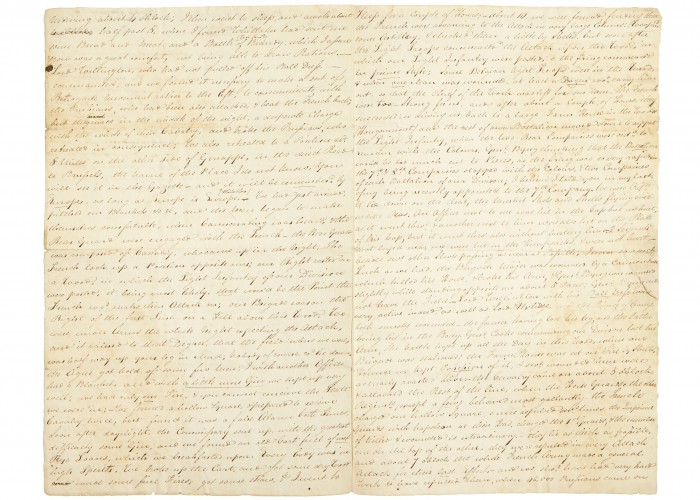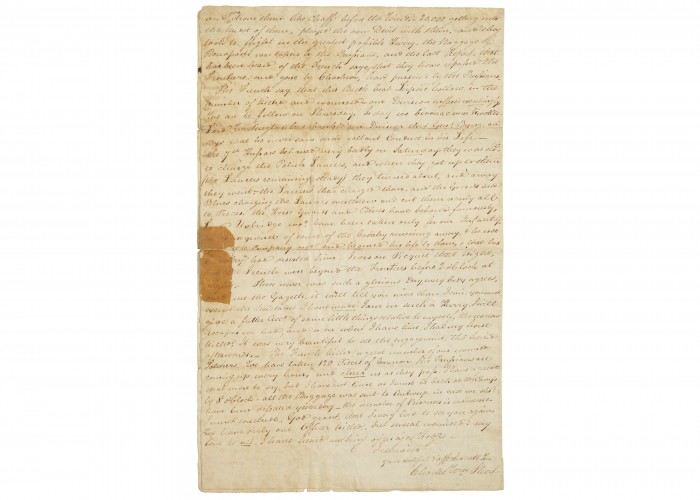Ensign Short’s Letter to his Mother
The writer of this letter, Charles William Short, was aged just 15 years old when he fought at the Battle of Waterloo. He was the most junior officer in the 2nd battalion of the Coldstream Guards. When he was commissioned, in October 1814, six months after Napoleon’s first abdication, it is unlikely that he anticipated fighting in battle eight months later. Read a transcription of the letter.
On the 16th June he first saw action at the Battle of Quatre Bras, although his battalion arrived very late in the day. Their role was mainly supportive of the 1st Guards, although they did play some part in the final repulse of the French. How he knew that “The Belgians ran at the first shot” is problematic, and must have been (inaccurate) hearsay. Similarly, his belief that a French charge in the middle of the night had sent the French into retreat from Ligny seems to be what he had heard.
Although not everything Short tells his mother can be trusted, his determination to cram in as much as he can effectively creates an impression of a young man who is struggling to process his thoughts in order to produce a coherent account of events. Indeed, in the final paragraph he seems to snatch at a random selection of details which he obviously felt needed to be included.
Because the letter was written the day after the Battle of Waterloo, long before a clear narrative of the battle had emerged, it possesses an excited immediacy which later accounts often lack. It also has the engagingly personal perspective of a young man who is almost overwhelmed by so many new experiences, whether they be his first experience of outpost duty, warming himself with “a little more Gin” or sharing in the general high spirits when a long, wet night came to an end.
The Coldstreamers were famously engaged in the defence of Hougoumont Farm. Short, however, was attached to the 7th company, which along with the 8th was posted on the ridge to protect the colours. Had he been with the rest of the battalion, it is unlikely that only a day after Waterloo he would have been able to present such a broad-based account for his mother that, at the same time, effectively creates the confusion of the battle.
Short continued to serve with the Coldstreamers. Promoted to lieutenant and captain in 1823, he finally retired from the army in 1842 with the rank of lieutenant colonel. He died in 1857 and is buried at Hartley Wintney in Hampshire.
One further point of interest is the final sentence, which links back to his reference to the bad behaviour of the 7th Hussars at Genappe on the 17th. Major Hodge had, in fact, been killed during that encounter with French lancers. Presumably, the major was an acquaintance of Ensign Short’s mother.
-
Curatorial info
- Production Date: 1815
- Creator: Ensign Charles Short
- Material: Ink and paper
-
Use this image
You can download and use the high resolution image for use in a non-profit environment such as a school or college, but please take note of the license type and rights holder information below
- Rights Holder: Private collection. Photography Relic Imaging Ltd.
- License Type: Creative Commons
Private Collection
Some objects - such as this one - are owned by private collectors. Waterloo 200 cannot give information on the ownership or location of these items.











